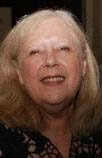 The photo at right shows my daughters at my book launch in Jacksonville.
The photo at right shows my daughters at my book launch in Jacksonville.When my book Killing Earl was released by a small Florida press, I felt good for two reasons.
I knew the book might help others. And I felt validated because the press is traditional, so I didn’t have to subsidize publication.
My book tells the story of our younger daughter’s “mystery illness” that turned out to be anything but a mystery. She saw a number of physicians for over a year. She was treated for many different ailments, and her primary physician at one point thought she was depressed and her mother was nuts.
One of the two physical problems finally diagnosed was an ovarian cyst that bled into her abdominal cavity. One of the obvious problems throughout the ordeal involved her physician’s communications skills. Our daughter was 12 years old at the time. Her skills were those of a pre-teen who didn’t really like her doctor.
When I read about the Tulsa woman who’d sought help for 12 years, I recalled the frustration we felt over our child’s medical dilemma. The Tulsa woman was obese.The cyst that caused her problems weighed 93 lbs. Our daughter was lean with nary an ounce of fat on her body. But both share a common affliction. It took many attempts to get a doctor to listen to them and help.
Our daughter is fully recovered. We were lucky. I wrote the book after she asked me to. She told me if I were a single mother living in a trailer, no one would’ve helped her. She’s a very thinkative kid. I interviewed physicians and surgeons. I researched. My introduction was written by one of America’s top doctors.
I did a book tour and marketed to the best of my budget and my ability. But the book was challenged. After all, my publisher is small and the marketplace is glutted.
I’ve received so many letters from people who read it. And many of those letters came from women whose doctors heard them but didn’t listen to what they were saying.
It’s become a mantra for me to tell readers if you have a doctor who doesn’t take your pain seriously, find another doctor. And by all means, research your illness yourself. Knowing more will help you ask better questions. Not everyone finds a cure, but there’s a lot to be said for empowerment.
That’s the reason I wrote the book to start with. In finishing it, I was able to deal with the frustration and sadness we experienced when my daughter was ill.
Unfortunately, when I read stories like the one about the Tulsa woman, frustration rolls right back in.



No comments:
Post a Comment